
The conversion of natural ecosystems for agricultural land use and minerals’ extraction is one of the main drivers of global biodiversity loss. At the same time, deforestation and forest degradation in the tropics is the second largest source of global greenhouse-gas (GHG) emissions. Despite the scientific evidence about agriculture and mining as major threats to biodiversity and the global climate, the frontiers of global value chains continue to be expanded into tropical forests, causing deforestation, forest degradation and biodiversity loss.
The planetary organization of value chains is part of the problem: it intensifies the need for meat and minerals, increases the distance between the locations of extraction and production, and places of processing and final consumption. This telecoupling disconnects spaces of consumption with the local socio-ecological impacts of production. In recent years, consumers, governments and companies based in the European Union (EU) are increasingly looking for solutions to address environmental and social externalities of imported commodities such as meat and minerals. This renewed sensitivity has led to new regulations (e.g., the EU deforestation-free regulation), but also transnational corporations to adopt best practices guidelines and certification schemes.
EPICC applies a polycentric governance and environmental justice approach to investigate five selected commodity chains (cattle, soy, palm oil, gold and tin) that ‘feed’ the European market. EPICC seeks to map the governance and power links that connect the multiple territories of production and transformation and their plural legal systems with the European regulatory, political and socio-economic space. Thereby, the project identifies and analyzes leverage points and blind spots, and sheds light on the micro and macro conditions that may facilitate the mitigation of environmental and social impacts that occur at the selected locations of production, which are Brazil, Colombia and Indonesia.
EPICC pursues a multi-actor and transdisciplinary approach. Stakeholder involvement is thus one key aspect in each phase of the project. Commodity chain actors are one of the main target groups and include all actors that shape, implement and are bound by governance structures along the selected commodity chains.
The project is structured in six work packages (WP): WP1 coordinates the adaptation and co-design of the selected methods for inter- and intra-chain comparison; WP2 analyzes three commodity chains in Brazil; WP3 analyzes two commodity chains in Colombia; WP4 analyzes two commodity chains in Indonesia; WP5 analyzes the demand side in Europe; WP6 is responsible for coordination, dissemination and outreach.
EPICC is brought forward by a consortium of universities from Europe, Brazil and Indonesia. It is financed by the European network of programmers and funders of research on biodiversity, ecosystem services and nature-based solutions (Biodiversa+), with support of two Brazilian State Research Aid Foundations (FAPESC and FAPERJ). The Universities involved include the University of Antwerpen (Belgium), the University of Lund (Sweden), the Leibniz Centre for Agricultural Landscape Research (ZALF) (Germany), the Norwegian University of Science and Technology, the University Gadjah Mada (Indonesia), the Fluminense Federal University and Santa Catarina Federal University (both from Brazil).

Tomaso Ferrando is Research Professor at the University of Antwerp (Faculty of Law and IOB), where he works and teaches on law, environmental and climate justice, and food. He holds a PhD in law from Sciences Po University (Paris) and has been a fellow at Harvard University Law School, University of Sao Paulo and the University of Cape Town. Within the EPICC consortium, he is the principal investigator and takes part in the “Demand Side Europe” work package (WP)

Vijay is trained in ecological science and environmental policy and is currently a postdoctoral researcher at the Institute of Development Policy (IOB) at the University of Antwerp. Vijay's broad research focus explores decolonial, degrowth-oriented alternatives to "greening" supply chains. His work is conceptually positioned between the fields of ecological economics and political ecology in examining initiatives such as agroforestry -related Payments for Ecosystem Services programs in Canada and in South Asia. Currently, he is examining the social and ecological impacts of compensatory afforestation plantations in India. At EPICC he takes part in the “Demand Side Europe” WP.

Gert is Associate Professor at the Institute of Development Policy (IOB) at the University of Antwerp, where he works and teaches on themes related to the social and environmental justice aspects of climate change and biodiversity policies in ‘development’ contexts, such as carbon and biodiversity markets, payments for ecosystem services and green finance. His theoretical approach is interdisciplinary and draws largely from the fields of political ecology, ecological economics, and critical geography. Most of his research engagements have focused on Central and South America. At EPICC he takes part in the “Demand Side Europe” WP.

Diana Vela Almeida is an Assistant Professor at the Copernicus Institute of Sustainability, Utrecht University. She combines political ecology, ecological economics, and feminist critical geography to study extractivism, neoliberal environmentalism, and socio-environmental resistance. Recently her work focuses on analyzing green capitalism in the energy transition agenda in Europe and its connection with extractive processes in the Global South. Diana is also a senior researcher at the Norwegian University of Science and Technology where she leads the EPICC project in WP of Indonesia.

Ståle Angen Rye is a Professor of Geography at the Norwegian University of Technology and Science. His research centers on citizen engagement in natural resource governance and its relationship to sustainable transitions. Currently, his primary focus is on studying the impacts of mineral extraction on local communities within the context of green transitions and the complex global interdependencies resulting from the surge in critical mineral extraction. Additionally, he has expertise in exploring young people's involvement in sustainable development, both through education and online media. At EPICC he coordinates the research for the Indonesia WP from NTNU.

Tadzkia is a researcher and a program manager of a joint research and education project “Citizen Engagement and Natural Resource Governance Education” between Norwegian University of Science and Technology and the Department of Politics and Government, Universitas Gadjah Mada. She graduated in Politics and Government at Universitas Gadjah Mada specializing in Natural Resource Governance. Her research interests cover the political economy of extractive industry and water politics specifically on private sector participation within water resource management in the Global South. At EPICC she is involved in the Production Country Indonesia WP.

Raras is a lecturer at the Department of International Relations, Universitas Gadjah Mada, and a researcher at the Center for World Trade Studies. Prior to joining the university, Raras was involved in various research focusing on issues of sustainable energy and the environment. Raras also has 6 years of experience in journalism covering economic and business issues, particularly in the energy, mining, stock market and corporate sectors. At EPICC she is involved in the Production Country Indonesia WP.

Dias works as a researcher at the Research Centre for Politics and Government, Faculty of Social and Political Science, Universitas Gadjah Mada. He received a Bachelor of Politics and Government from Universitas Gadjah Mada and wrote undergraduate thesis about democracy and discourse analysis. Before joining as a researcher, he worked as a journalist in TEMPO Media Group. He is interested in democracy discourse, natural resource governance, water governance, climate and environmental policy and urban studies. At EPICC he is involved in the Production Country Indonesia WP.

Nanang is a lecturer at the Department of Politics and Government, Universitas Gadjah Mada, Indonesia. He obtained his PhD at the Asia Institute, University of Melbourne, Australia, in 2016. Before becoming lecturer in 2006, he was involved in NGO activism at Institute for Research and Empowerment, at Yogyakarta, as a researcher. His research interests are in the area of natural resource conflicts, environmental politics, and social movement. At EPICC he is involved in the Production Country Indonesia WP.

Debbie is a PhD student at the Department of Politics and Government, Universitas Gadjah Mada, Indonesia. Her PhD research focuses on the dynamic changes of palm oil regulations and policies in Indonesia in responding to the global initiatives on sustainability and deforestation-free products, with an emphasis on palm oil intensification programs in West Kalimantan. She holds bachelor’s degree in Sociology from UGM and Master of Arts of political science on human rights and democracy concentration from Department of Politics and Government, Faculty of Social and Political Sciences. At EPICC she is involved in the Production Country Indonesia WP.

Marcela holds a PhD in International Relations from McMaster University, Canada. She is an Associate Professor at Federal University of Pará with a permanent position at the Centre for Advanced Amazonian Studies (NAEA). Her research interests focus on indigenous politics and traditional communities politics, land and forest politics, global environmental policy and justice, economic anthropology and nature-society relations. Working in the Panamazon region since 2007, Marcela has large experience with popular education, grounded social and environmental monitoring and social cartography. At EPICC, she takes part in the Producing Country Brazil working package by holding a postdoctoral position at the Institute of Development Policy at the University of Antwerp, Belgium.

Rafaella is a Ph.D. student in Socio-environmental Development at the Centre for Advanced Amazonian Studies (NAEA), from the Federal University of Pará (UFPA), Brazil, with a period as a visiting researcher at the Institute of Development Policy (IOB), University of Antwerp, Belgium. Her research focuses on the impacts of soy plantations and soy transportation infrastructure on protected areas, peoples, and territories in the Tapajós river/BR-163 region, in Pará state, in the Brazilian Amazon. Rafaella holds a master's degree in Political Science and a bachelor's degree in International Relations, and her research interests focus on socio-environmental and climate policies, and environmental justice in land use change dynamics. At EPICC, she takes part in the Producer Country Brazil WP.

Gisele holds a PhD in Science and a master's in Geography, both from Santa Catarina federal University. In the last years she has worked with environmental management and nature conservation projects in NGOs in southern Brazil. Her interests are focused on land use and land cover dynamics, agroecology, forest management and traditional communities, specially smallholders farmers and peasants. At EPICC she holds a postdoctoral position at the University of Antwerp, Belgium, and takes part at the Producing Country Brazil WP.

Abdon obtained his PhD in Sustainable Agriculture at the University of Vermont, USA. He is currently a Professor at the Graduate Program in Agroecosystems at the Federal University of Santa Catarina. He coordinates the Laboratory of Silvopastoral Systems and Ecological Restoration. He has experience in the interface between agroecology and environmental performance of animal production systems that restore ecosystem functions and services. He works mainly in the areas of biodiverse silvopastoral systems, ecological restoration, agroecology and ecosystem services. At EPICC he is involved in the Production Country Brazil WP.

Lucas is pursuing his Master's degree in Agroecosystems at the Federal University of Santa Catarina. The focus of his research is to analyze socio-environmental responsibility reports of multinational and transnational corporations operating in the Beef-Soy Chain in the Tapajós Region. He is part time a teacher at the Marista Social School at a low income community situated in Florianópolis, Santa Catarina. His aspiration is to contribute to the broader understanding of sustainable practices within the context of the Amazon region. He is part of the Production Country Brazil WP.

Natália graduated in Environmental Engineering and is doing her Master degree in Agroecosystems at the Federal University of Santa Catarina. The focus of her research is to understand land grabbing and commodities expansion at protected areas in the Tapajós Region. In EPICC, she is part of the Production Country Brazil WK.

Roldan was born in Venezuela and since 2013 he has lived in Rio de Janeiro. He holds a PhD in environmental sciences from the Autonomous University of Barcelona (Spain) and has been a fellow at Tilburg University and Nijmegen University, in the Netherlands. Currently, he teaches at the Fluminense Federal University, in Niteroi. His main lines of research focus on the link between governance and environmental issues. At EPICC, he is part of a team involved in the Production Country Brazil WP, working on the gold value chain.

Luiz is a geographer and holds a PhD in Geography from the Federal University of Rio de Janeiro, Brazil. He is currently a professor at the Fluminense Federal University, in the Geography department. At EPICC, he is part of a team involved in the Production Country Brazil WP, working on the gold value chain.

Barbara holds a PhD in Political Sciences and is an associated researcher at the Leibniz Centre for Agricultural Landscape Research (ZALF), in Müncheberg, Germany. Her research focus is on governance, institutional and social network analysis using participatory methods, transdisciplinary and transformative approaches.Currently Barbara is working on nature-based solutions, water governance and sustainable global value chains. At EPICC she is senior researcher in the Multi-stakeholder engagement & methods and the Producing Country Colombia WPs.

Lasse is a researcher at the Leibniz Centre for Agricultural Landscape Research (ZALF), inMüncheberg, Germany. He holds a Master's degree in Sustainability Management and a Ph.D. in Law Studies. Lasse research interests focus on equity and environmental justice in the governance of ecosystem services, incentive-based policy instruments for the sustainable provision of ecosystem services and Reducing Emissions from Deforestation and Degradation (REDD+). At EPICC he is a senior researcher in the Multi-stakeholder engagement & methods and in Demand Side Europe WP.

Torsten is associate professor at the Lund University Centre for Sustainability Studies, in Lund, Sweden. In the past years he has spent most of his time working on defaunation as a missing piece in forest governance. Torsten is particularly interested in traditional knowledge around hunting of forest fauna in the Colombian Amazon. He has also studied forestry and forest governance, conservation science, ethnobiology and environmental justice. At EPICC he is a senior researcher in the Producing Country Colombia and in Coordination, Dissemination and Communication WP.

Paula is a Ph.D. candidate at Humboldt-University Berlin and Leibniz Centre for Agricultural Landscape Research, Müncheberg, Germany. She holds a Master's degree in Socio-Ecological Resilience for Sustainable Development from Stockholm University. She has work experience in sustainable finance, supply chain analysis, formal participatory decision-making with indigenous and ethnic groups, modeling and forest ecology. Her research interests are telecoupling, political ecology, environmental justice and forest governance, especially in relation to land use change dynamics. At EPICC she is engaged in the Producing Country Colombia WP.

Ysaline Reid holds a Master of Laws (LL.M) from the University of Antwerp with a specialization in sustainable development and global justice. She is currently a research assistant at the University of Antwerp (Faculty of Law and IOB). Her main research interests are international human rights law, environmental justice, and sustainable food systems, drawing from the field of political ecology. At EPICC she takes part in the “Demand Side Europe” WP.
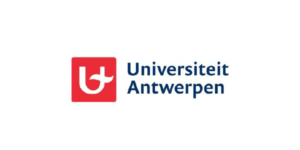
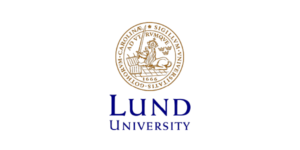



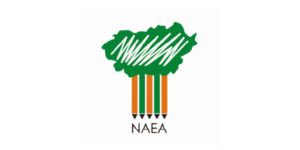
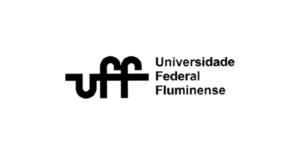
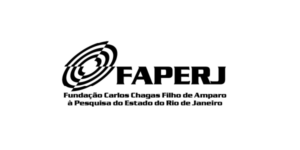
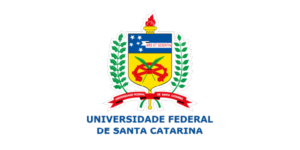
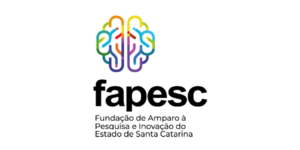

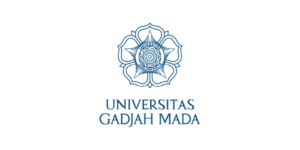
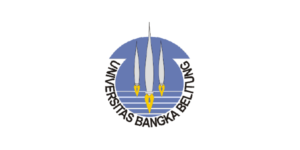

Developed by Estúdio Massa